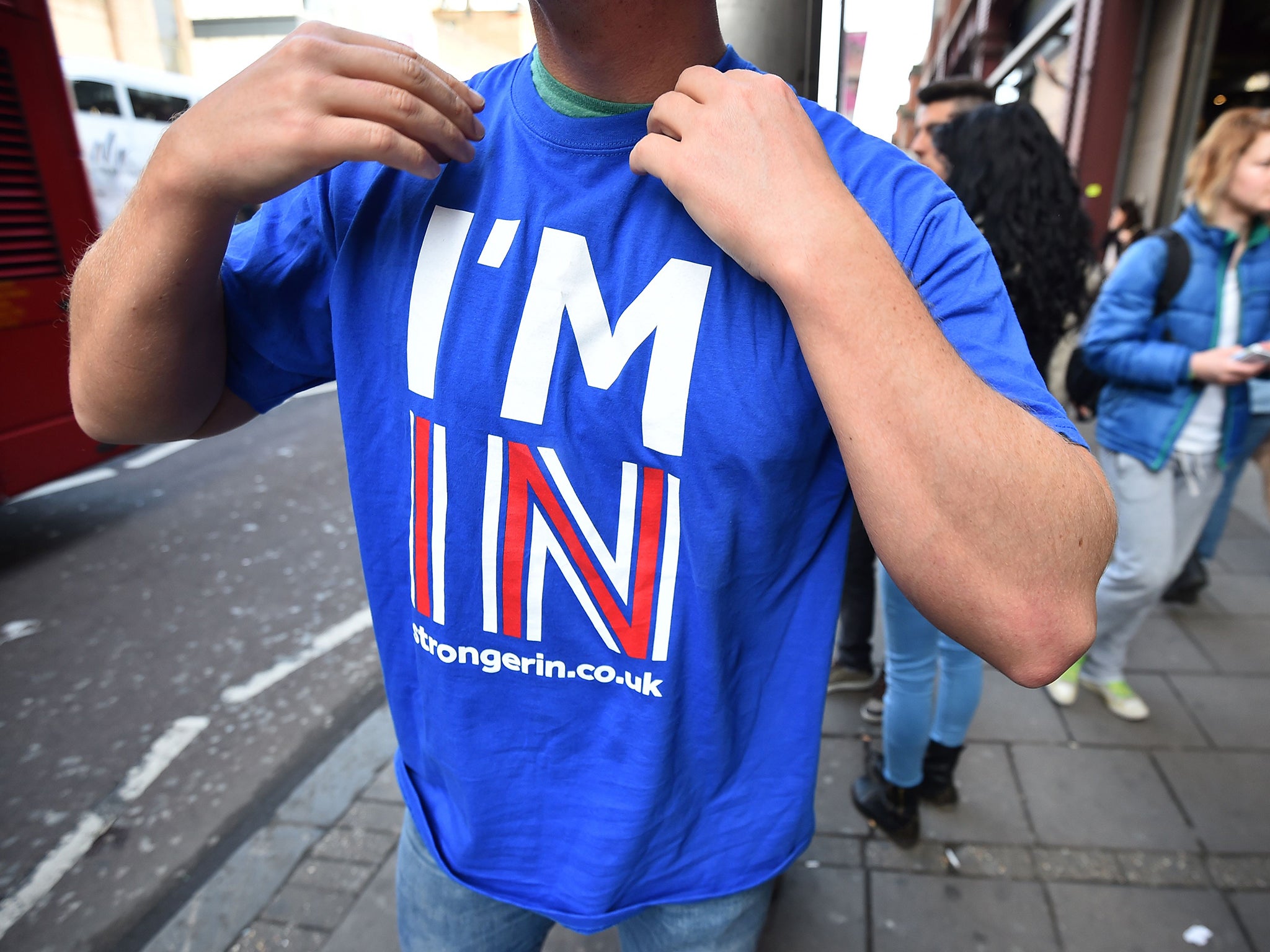The big names backing Remain want you to forget how so many of them pushed for Britain to join the euro
In 2001, the Financial Times predicted that Greece in particular was set to draw huge benefits from Eurozone membership

Your support helps us to tell the story
From reproductive rights to climate change to Big Tech, The Independent is on the ground when the story is developing. Whether it's investigating the financials of Elon Musk's pro-Trump PAC or producing our latest documentary, 'The A Word', which shines a light on the American women fighting for reproductive rights, we know how important it is to parse out the facts from the messaging.
At such a critical moment in US history, we need reporters on the ground. Your donation allows us to keep sending journalists to speak to both sides of the story.
The Independent is trusted by Americans across the entire political spectrum. And unlike many other quality news outlets, we choose not to lock Americans out of our reporting and analysis with paywalls. We believe quality journalism should be available to everyone, paid for by those who can afford it.
Your support makes all the difference.The general consensus seems to be that when it comes to economic concerns, the Remain camp has a clear lead. Many in the Leave campaign have made convincing and plausible economic counter-arguments. Yet their credibility is often perceived to be undermined by financial heavyweights making the economic case to stay. From the Economist to the Financial Times, the Bank of England to IMF, the Remain camp has benefited widely from the support of big names.
Of course the referendum on Britain’s EU membership is about much more than economics. It is a vote over how Britain wishes to be governed – by either an elected parliament in Britain or an unelected Commission in Brussels. However, with such economic wisdom supposedly on the side of the Remain camp, it is worth recalling the attitude that Euro-enthusiasts in Britain once had for the euro. The continent’s single currency, needless to say, has been an economic disaster. Yet had the pro-EU crowd had their way, Britain too would have been part of this union of monetary mess.
Among many, it was self-evident that Britain should join the euro. Some of the most influential politicians in the 1990s and 2000s were fervently pro single currency. From Danny Alexander and Paddy Ashdown, to Tony Blair and Peter Mandelson, Ken Clarke, alongside Nick Clegg, Chris Huhne, and Chris Patten. At the same time, supposed key dispensers of financial and business wisdom in the country such as the Financial Times and the Confederation of British Industry (CBI) were also making the case for the euro.
In 1998, Adair Turner, then Director General of the CBI told business leaders that “the euro will create a single market of transparent prices, reduced exchange rate risk and a pan-European capital market. Each of these will give a stimulus to competition and productivity growth across Europe.”
Speaking at a CBI conference in 1999, Turner said that a majority of British businesses were in favour of joining the monetary union, while in the year 2000 Sir Clive Thompson, the CBI’s then president, expressed his disappointment with the Blair government’s wavering on Eurozone membership. “It is a difficult choice to make,” he said “but we have to accept that the euro exists. I believe on balance we should join.”
In 2001, the Financial Times predicted that Greece in particular was set to draw huge benefits from Eurozone membership. “With Greece now trading in euros, few will mourn the death of the drachma,” it predicted. “Membership of the Eurozone offers the prospect of long-term economic stability.” There are countless reports and columns from the newspaper in the 2000s either advocating Britain’s membership of the Eurozone, or extolling its many positives on the continent. Until the Eurozone crisis first flared up, that is.
At the time, it was those opposed to Britain joining the monetary union that were portrayed as lacking any economic sense. Writing in the Independent in 2003, Johann Hari wrote, “the anti-Europeans want to hum Land of Hope and Glory as they nuke the British economy.” Those who wished to keep Britain out of the disastrous single currency were, apparently, sacrificing Britain’s economy for sake of feel-good nationalism. The accusations are the same today. Yet what is clear now – and yes, hindsight is a wonderful thing – it was the pro-single currency set that was prepared to sacrifice Britain’s economy for the sake of a feel-good cosmopolitanism.
The referendum itself is much more than economic. Whatever short-term economic and financial shocks we face, it is still a price worth paying for democracy. But at the same time, it is worth remembering that many of the same people that now warn of the economic dangers of Brexit, were also calling for Britain to opt into the single currency experiment. Even as late as 2009, the IMF was urging Eastern European EU members to adopt the euro, as a tool for “removing uncertainty and restoring confidence,” in their economies.”
Those who were the most fervent European integrationists have now been proven wrong, while those who leaned more to the sceptical side were vindicated as correct. This patchy record on the economy upsets the whole idea that the Remain camp is the side of economic wisdom: had we listened to them ten years ago, Britain’s economy would be in a greater mess than we could imagine. Perhaps we should not be so quick to assume the Remain camp are to be most trusted when it comes to the economic implications of the UK's EU membership.
Join our commenting forum
Join thought-provoking conversations, follow other Independent readers and see their replies
Comments